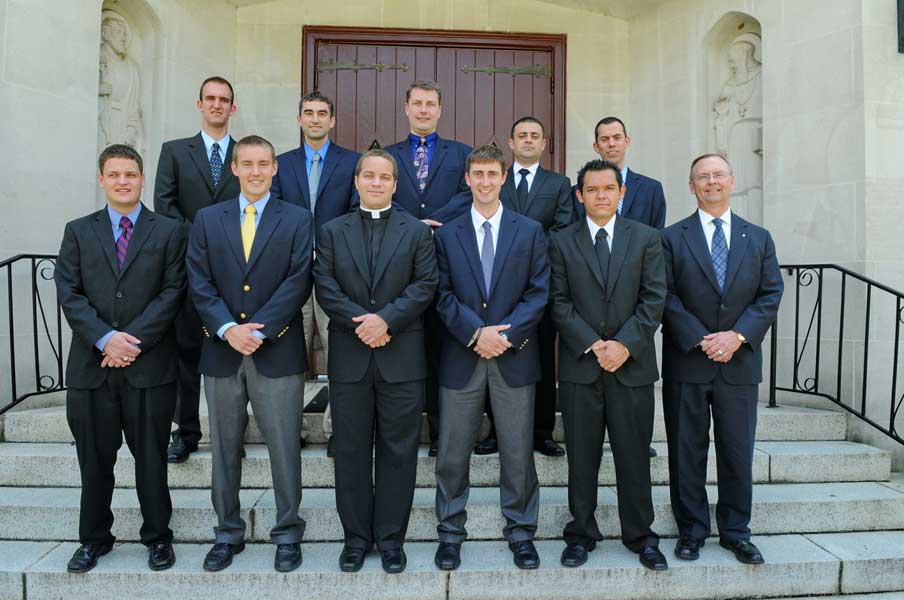
 The seminarians for the Diocese of Charleston just spent a week together on retreat.
The seminarians for the Diocese of Charleston just spent a week together on retreat.
There are 11 of them this year.
Father Jeffrey F. Kirby, vicar for vocations, said that may not sound like a lot, but compared to national statistics, it is phenomenal.
The diocese only has about 196,000 Catholics, and many of them are retired, so 11 is a big number. Father Kirby points out that other states with upward of 400,000 Catholics only have six seminarians.
It is a strong testament to the success of the vocations campaign, which started in 2009.
Not only have they waged a successful discernment campaign by going into the schools and parishes, among other things, they have worked within guidelines that are more strict than other states.
Requirements set forth by Bishop Robert E. Guglielmone call for seminarians in the diocese:
- to be under 50 years old;
- to have some sort of association with South Carolina; i.e., they must have lived in the state, worked here,or studied here;and
- to have at least five years of active service in the church, if they are a convert, prior to applying to the priesthood.
Father Kirby said the bishop wants to have native clergy who understand the culture of the region and have a sense of commitment to the people.
Keeping the age low is also helpful. The average age of a seminarian in the diocese is 30. Nationally, the average age of a newly ordained priest is 36.
Father Kirby said he’s happy with the way things are going, noting that the vocations department receives phone calls from other dioceses and religious orders who want to emulate the success of Charleston’s program.
That doesn’t mean the priest shortage has been solved. According to extensive research, the diocese needs six new seminarians each year with four making it to ordination in order to sustain the current coverage, the vicar said.
Right now, the diocesan average is two.
“Although we’re doing really well, when we look at it objectively in terms of need we see some real challenges,” he said.
This is why components like the strategic plan, which takes discernment into every aspect of Catholic life, are so important, he said.
“There are signs of hope,” he said.
